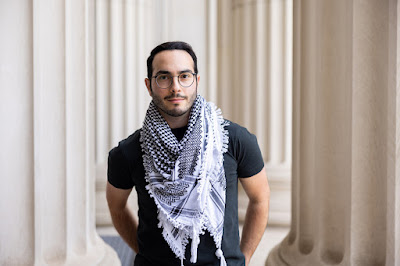Ubadah
Sabbagh, a postdoc at MIT's McGovern Institute, is a young leader in neuroscience research who is also paving the road for making
science more equitable and inclusive. As an immigrant from Syria, his
exposure to war sparked his interest in human behavior, i.e. what
biological mechanisms influence people to do things. He researched the
connections between the brain and eye, mapping the landscape of neurons
in the region of the thalamus essential to visual processing. As a
result, he was recognized in Forbes "30 under 30" list, the first Syrian
to be selected for the science category, and was awarded the NIH
F99/K00. Ubadah used this increased visibility to advocate for the
betterment of science through multiple initiatives such as co-founding
Black in Neuro, empowering Black scholars in neuroscience. Additionally,
he serves on the advisory committee for both the SfN (Society for
Neuroscience) and NIH, addressing ways to improve post doctoral training
and make the work of scientists more accessible to public. One thing
Ubadah hopes for in the future is building infrastructure in local
c
ommunities and local minds, instead of having to leave countries like his own, to get advanced scientific training.
ommunities and local minds, instead of having to leave countries like his own, to get advanced scientific training.
-Aliha
